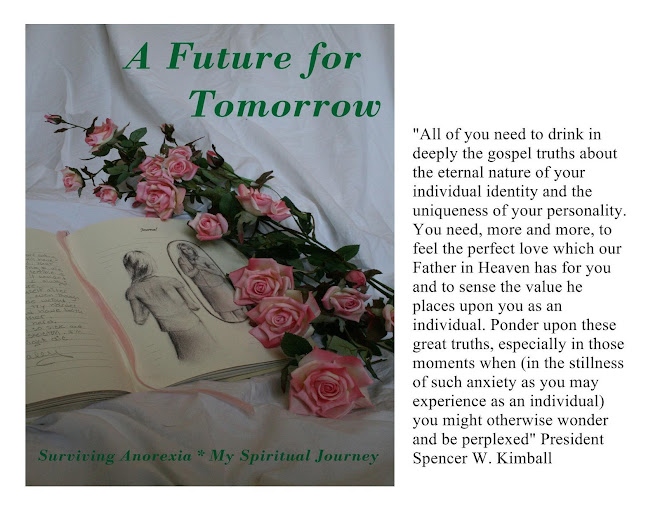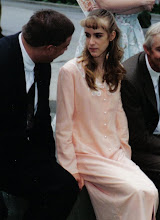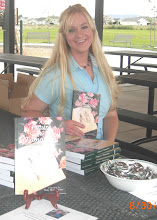I was so excited to see Karen on Studio 5 this week. You might remember me mentioning her before. I was able to speak at her self-esteem outreach retreat this summer. Click here to read my post about that event.
Karen is also behind The Book of Positive Messages. It was an honor for my story to be featured in her book. Click here for more info about The Book of Positive Messages.
This is what Sudio 5 posted about her:
Karen Eddington is the founder and owner of Cauliflower Retreat, self-worth outreach program for everyday women and teens. She shares tips to help every parent build self-worth within the home
--------------------------------------------------------------------------------
Each of us faces pressures. Sometimes pressures and challenges can cause us to question ourselves. No matter if you're a mother, aunt, sister, or father you can play a vital role in establishing self-confidence within a family. The home is the place where we grow up, the people we live with, and it is the foundation for our values. No matter what circumstances you are in, your example and influence within the home matters.
1. Teach the stable nature of self-worth: Contrary to all the messages we see, our value as a person is constant. Sometimes we feel like we lose value if we get cut from the dance team, gain weight, or don't have an income. Sometimes we feel like we gain value if we have a makeover, lose weight, or are offer a position of important. Self-Worth is always there. Our self-esteem, which is our perception of our value, is often what changes. Teaching the constant nature of worth can help bring a feeling of security.
2. Recognize and replace thinking errors: A thinking error is a thought we may dwell on that is restrictive or false. For example, "Nobody likes me." When we have a thinking error we are often overlooking other facts or positive factors. The moment you catch yourself thinking restrictively, stop, and replace the false statement with something you know to be true. "Yes, people do like me. My mom likes me. The girl in my math class likes me." You can help those in your home to recognize and replace thinking errors. Here are a few more examples of thinking errors: "I have no talents." "I'm a bad mother." "I never win anything."
3. Don't find yourself, create yourself: There are times in life we feel lost. We may have heard or used the expression, "I've got to find out who I am." Part of living is growing. We won't just wake-up one day and find ourselves, rather ever moment of our lives is about creating ourselves. Our identity is about choices and being accountable for our choices. If someone in your home is feeling lost in terms of their identity help them discover things they look forward to, goals they are working on, and work they can engage in.
4. Bring out the best in each other: Take time to look for the good in each other. Treat one another as the person we can become. As families spend a lot of time together, it can be easy to get hung up on our bad habits, focus on tendencies, and label one another. Example: "Mary is shy, Ryan is athletic, or Kim is talkative." Yes, it is good to share affirmations when someone does something good, but don't limit one another. Even if someone in your family is shy, don't keep dwelling on that label. Treat one another as we can become.
5. Be the refuge: You can create a safe environment, through communication, love and support. Especially amid times of struggle, be there to talk, listen and love one another. Make an effort to know what is going on with each person in your home. Take time to learn their hopes, fears, and goals. Ask questions so you understand the best and worst parts of their day. Create that atmosphere of love and safety.
I LOVE these tips! Thanks Karen. To learn more about her and her retreat click here.
Sunday, October 31, 2010
Saturday, October 30, 2010
"My Gift to You" by Lori Nawyn
My friend Lori has a new book out that I am honored to spotlight. She is a remarkable woman with so many talents, including illustrating and writing. This is her first published novel and I'm thrilled for her!
Trish Ingram works hard to maintain the perfect suburban household—or, at least, the appearance of one. By managing her outer world with lavish attention and rigid control, she’s able to ignore and conceal the darkness of her inner world, which is plagued by traumatic childhood memories of loss. Her terminally ill sister-in-law, Jamie, sees through the façade and reaches out in love to Trish, inspiring her to seek a more meaningful life and a more authentic self. But the childhood scars run deep, and despite Trish’s best efforts, she’s unable to be the wife and mother her family needs.
Devastated by the departure of her husband and daughter, Trish faces the challenge and opportunity of a lifetime. She desires to move forward in faith, but this desire alone cannot mend her family's shattered trust. The hollow realm of denial and fear has been her safe haven. To confront pain and transcend the shadows of her past will require a level of courage she’s not sure she possesses. This gripping story of familial love and conflict tenderly reminds us that forgiveness—of self, and others—is both a difficult choice and a precious gift.
Here is a little about the author (love her!)
Lori Nawyn's award-winning writing has appeared in regional and national publications including Outside Bozeman, Segullah, Deseret News, CraziBeautiful Women, and Latter-Day Woman. She is also a columnist for her local paper and a former member of Utah Press Women. One of her short stories was published in the anthology Stolen Christmas. Her first novel, My Gift to You, was released in October 2010.
Lori is currently writing her next novel, Day, about a mother’s relationship with her son. She works as a freelance artist and is the illustrator of the award-winning children's picture book What Are You Thinking? which was released in July 2010 by ThoughtsAlive Publishing. She and her fireman husband live in northern Utah where they enjoy spending time with their four children and two granddaughters, plus an assortment of dogs, rabbits, and chickens.
This is what Lori says about why she wrote this book:
“My Gift to You” is about forgiving ourselves, despite what we perceive as our shortcomings.
When we judge ourselves as less than acceptable for any reason, small mistakes can cripple us with discouragement. It becomes easy to lose sight of our potential, as well as precious opportunities for growth.
I was an only child with ample time to ponder the intricacies of human behavior. At a young age, I became fascinated by the fact that while several people in my life were happy, upbeat, and in possession of inner peace in most if not all circumstances, some seemed inherently unhappy no matter what happened—good or bad. Money and possessions didn’t seem to have a bearing, and I wondered what did.
Though I’d been baptized when I was eight, my family didn’t attend church. If I wanted to go, I had to attend on my own. It took me a while to grasp gospel concepts, and I found that most of the time I was among those who were unhappy. About twenty years ago I decided to stop asking Why me? and instead start asking What if?
One by one, I replaced negative emotions with those of a positive nature. Instead of wondering why I couldn't make everyone around me happy—and becoming despondent because nothing I did seemed to change them or their opinions—I started asking things like, "What if happiness really is a choice? What if it can be my choice, no matter what anyone else thinks or feels?"
Instead of commiserating over why my extended family couldn't accept me for who I was and what I believed in, I asked myself, "What if I could choose my own thoughts and emotions based on what I know in my heart is right and true?" In short, "What if I accept myself for who I am?"
And, "What if I forgive—knowing that forgiveness doesn't mean acceptance?"
When I began writing “My Gift to You,” I decided I wanted my main character, Trish, to discover something important about herself: I wanted her to discover her own inner strengths and worth—much like I had when I began to unravel my own life.
I think this sounds like a beautiful book and I look forward to reading it.
My Challenge
Lori shares some powerful points above. I also believe we can choose our emotions. Today I would like to challenge you to choose to be happy, content, and to feel at peace. Make choices throughout the day that will help make your choice for happiness easier.
Then try it tomorrow and the next day. With conscious effort, try to focus on what you are feeling and choose to feel how you want to for the rest of the week.
Wednesday, October 27, 2010
Intuitive eating
At the Women's Conference I spoke at last week I touched some on the concepts behind intuitive eating but I didn't have the time to go into it.
I want to first explain what it is, this is the statement on Intuitive Eating.org:
"Intuitive eating is an approach that teaches you how to create a healthy relationship with your food, mind, and body--where you ultimately become the expert of your own body. You learn how to distinguish between physical and emotional feelings, and gain a sense of body wisdom. It's also a process of making peace with food---so that you no longer have constant "food worry" thoughts. It's knowing that your health and your worth as a person does not change because you ate a so-called "bad" or "fattening" food."
When I started counseling for anorexia after I left the hospital my counselor said he was going to use the same treatment for me as he would a person who weighed 400 pounds struggling with food addictions.
I learned then that overeating or under eating is caused by the same underlining issues.
At that time he introduced a little bit of the concept behind intuitive eating but it wasn't called that. He focused on trusting your body and trying to get me to learn to connect to my bodies needs again. (Also he helped me begin to work out the underlining issues which is key to recovery on the emotional end.)
I then started using the intuitive eating methods without even knowing it by just doing what I discovered was and wasn't working for me. For example I noticed I actually LOST weight during the HOLIDAYS! After a year or two of this happening I finally connected that it was because I gave myself complete permission to eat whatever I wanted because "it was the holidays" and eating certain treats was part of the celebration. I didn't deprive myself of anything and so naturally I was listening to my body more. I found myself wanting less because there were no "forbidden" foods or amounts. I later learned this is the major concept behind intuitive eating - banning nothing. It really does keep you from obsessing.
For instants if I told you that you could eat anything you want for the next week except for blueberry muffins, guess what will happen? You will crave and obsess over blueberry muffins!!!
Restricting leads to obsessing, then eventually when you do "give in" it usually leads to binging, then feelings of guilt, then the cycle often starts over again.
Then I took a course at college about eating behaviors and the principals were taught as a healthy way to create a better relationship with food. I really grabbed hold of it then, like I said before, I never heard the actual term intuitive eating until recently but people were learning the truth behind these principals then, and they do work and did for me.
Why intuitive eating? Because diets don't work!
95 Percent of Dieters Regain Weight Within 1 to 5 Years (-Tom at RealSelf on Jul 2, 2009)
Here is a summary of the 10 principles of Intuitive Eating, from the book, Intuitive Eating, 2nd ed, 2003.
by Evelyn Tribole, MS, RD and Elyse Resch, MS, RD, FADA
Intuitive Eating Principles
1. Reject the Diet Mentality Throw out the diet books and magazine articles that offer you false hope of losing weight quickly, easily, and permanently. Get angry at the lies that have led you to feel as if you were a failure every time a new diet stopped working and you gained back all of the weight. If you allow even one small hope to linger that a new and better diet might be lurking around the corner, it will prevent you from being free to rediscover Intuitive Eating.
2. Honor Your Hunger Keep your body biologically fed with adequate energy and carbohydrates. Otherwise you can trigger a primal drive to overeat. Once you reach the moment of excessive hunger, all intentions of moderate, conscious eating are fleeting and irrelevant. Learning to honor this first biological signal sets the stage for re-building trust with yourself and food.
I want to first explain what it is, this is the statement on Intuitive Eating.org:
"Intuitive eating is an approach that teaches you how to create a healthy relationship with your food, mind, and body--where you ultimately become the expert of your own body. You learn how to distinguish between physical and emotional feelings, and gain a sense of body wisdom. It's also a process of making peace with food---so that you no longer have constant "food worry" thoughts. It's knowing that your health and your worth as a person does not change because you ate a so-called "bad" or "fattening" food."
When I started counseling for anorexia after I left the hospital my counselor said he was going to use the same treatment for me as he would a person who weighed 400 pounds struggling with food addictions.
I learned then that overeating or under eating is caused by the same underlining issues.
At that time he introduced a little bit of the concept behind intuitive eating but it wasn't called that. He focused on trusting your body and trying to get me to learn to connect to my bodies needs again. (Also he helped me begin to work out the underlining issues which is key to recovery on the emotional end.)
I then started using the intuitive eating methods without even knowing it by just doing what I discovered was and wasn't working for me. For example I noticed I actually LOST weight during the HOLIDAYS! After a year or two of this happening I finally connected that it was because I gave myself complete permission to eat whatever I wanted because "it was the holidays" and eating certain treats was part of the celebration. I didn't deprive myself of anything and so naturally I was listening to my body more. I found myself wanting less because there were no "forbidden" foods or amounts. I later learned this is the major concept behind intuitive eating - banning nothing. It really does keep you from obsessing.
For instants if I told you that you could eat anything you want for the next week except for blueberry muffins, guess what will happen? You will crave and obsess over blueberry muffins!!!
Restricting leads to obsessing, then eventually when you do "give in" it usually leads to binging, then feelings of guilt, then the cycle often starts over again.
Then I took a course at college about eating behaviors and the principals were taught as a healthy way to create a better relationship with food. I really grabbed hold of it then, like I said before, I never heard the actual term intuitive eating until recently but people were learning the truth behind these principals then, and they do work and did for me.
Why intuitive eating? Because diets don't work!
95 Percent of Dieters Regain Weight Within 1 to 5 Years (-Tom at RealSelf on Jul 2, 2009)
Here is a summary of the 10 principles of Intuitive Eating, from the book, Intuitive Eating, 2nd ed, 2003.
by Evelyn Tribole, MS, RD and Elyse Resch, MS, RD, FADA
Intuitive Eating Principles
1. Reject the Diet Mentality Throw out the diet books and magazine articles that offer you false hope of losing weight quickly, easily, and permanently. Get angry at the lies that have led you to feel as if you were a failure every time a new diet stopped working and you gained back all of the weight. If you allow even one small hope to linger that a new and better diet might be lurking around the corner, it will prevent you from being free to rediscover Intuitive Eating.
2. Honor Your Hunger Keep your body biologically fed with adequate energy and carbohydrates. Otherwise you can trigger a primal drive to overeat. Once you reach the moment of excessive hunger, all intentions of moderate, conscious eating are fleeting and irrelevant. Learning to honor this first biological signal sets the stage for re-building trust with yourself and food.
3. Make Peace with Food Call a truce, stop the food fight! Give yourself unconditional permission to eat. If you tell yourself that you can't or shouldn't have a particular food, it can lead to intense feelings of deprivation that build into uncontrollable cravings and, often, bingeing When you finally “give-in” to your forbidden food, eating will be experienced with such intensity, it usually results in Last Supper overeating, and overwhelming guilt.
4. Challenge the Food Police .Scream a loud "NO" to thoughts in your head that declare you're "good" for eating under 1000 calories or "bad" because you ate a piece of chocolate cake. The Food Police monitor the unreasonable rules that dieting has created . The police station is housed deep in your psyche, and its loud speaker shouts negative barbs, hopeless phrases, and guilt-provoking indictments. Chasing the Food Police away is a critical step in returning to Intuitive Eating.
5. Respect Your Fullness Listen for the body signals that tell you that you are no longer hungry. Observe the signs that show that you're comfortably full. Pause in the middle of a meal or food and ask yourself how the food tastes, and what is your current fullness level?
6. Discover the Satisfaction Factor The Japanese have the wisdom to promote pleasure as one of their goals of healthy living In our fury to be thin and healthy, we often overlook one of the most basic gifts of existence--the pleasure and satisfaction that can be found in the eating experience. When you eat what you really want, in an environment that is inviting and conducive, the pleasure you derive will be a powerful force in helping you feel satisfied and content. By providing this experience for yourself, you will find that it takes much less food to decide you've had "enough".
7. Honor Your Feelings Without Using Food Find ways to comfort , nurture, distract, and resolve your issues without using food. Anxiety, loneliness, boredom, anger are emotions we all experience throughout life. Each has its own trigger, and each has its own appeasement. Food won't fix any of these feelings. It may comfort for the short term, distract from the pain, or even numb you into a food hangover. But food won't solve the problem. If anything, eating for an emotional hunger will only make you feel worse in the long run. You'll ultimately have to deal with the source of the emotion, as well as the discomfort of overeating.
8. Respect Your Body Accept your genetic blueprint. Just as a person with a shoe size of eight would not expect to realistically squeeze into a size six, it is equally as futile (and uncomfortable) to have the same expectation with body size. But mostly, respect your body, so you can feel better about who you are. It's hard to reject the diet mentality if you are unrealistic and overly critical about your body shape.
9. Exercise--Feel the Difference Forget militant exercise. Just get active and feel the difference. Shift your focus to how it feels to move your body, rather than the calorie burning effect of exercise. If you focus on how you feel from working out, such as energized, it can make the difference between rolling out of bed for a brisk morning walk or hitting the snooze alarm. If when you wake up, your only goal is to lose weight, it's usually not a motivating factor in that moment of time.
10 Honor Your Health--Gentle Nutrition Make food choices that honor your health and taste buds while making you feel well. Remember that you don't have to eat a perfect diet to be healthy. You will not suddenly get a nutrient deficiency or gain weight from one snack, one meal, or one day of eating. It's what you eat consistently over time that matters, progress not perfection is what counts.
Challenge:
I would like to challenge you to pick a step from the list above and try it. I would recommend starting with giving yourself unlimited permission to eat all foods. No more restricting!
I think there are several books about Intuitive Eating but this is the one that I have gotten the info from and it looks like a great resource.
Monday, October 18, 2010
Women's Conference Breakthrough: Peace with Food, Peace with your Body
Saturday, Oct 16th I was honored to present at a women's conference called Breakthrough: Peace with Food, Peace with your Body, a Cherie Burton event.
There were a lot of "wow" moments, I know I took something valuable away from each speaker. What made this gathering extra effective in my mind was the fact that each speaker (including myself) connected spirituality and being a daughter of God with their presentation. I know internalizing that fact that you are a beautiful, unique, cherished, divine daughter of God is vital for a healthy relationship with food because if you value yourself you will want to treat your body with love and respect. You could not binge or restrict food, abuse yourself with negative self talk, and other harmful behaviors if you truly knew your worth and power as a daughter of God.
(In photo left to right: Cherie Burton, Haley Freeman (me), Steffanie England, Jessie Funk, Jen Marco Handy.) There were other presenters but these are the ladies that were around at the end who I was able to grab for a picture. Jessie and Jen shared their amazing voices and musical talent in their presentation. I recommend checking them out. I love Jessie's new inspirational CD (click on Jessie Funk's name above to hear her) and what she is doing with The Ivy Girl Academy
I met some remarkable women both in the presenters and in the attendees. It is amazing how small the world can be and how there is no other explanation for some connections made at these events other than the Lord had a hand in it.
It was a powerful experience for many, if not all who attended.
The conference was recorded. Click here to see the program. I know many of you had scheduling conflict with the event so let me know if you want the recording. You can leave me a message here with your contact info (e-mail) or you can e-mail me at afuturefortomorrow@gmail.com
There were a lot of "wow" moments, I know I took something valuable away from each speaker. What made this gathering extra effective in my mind was the fact that each speaker (including myself) connected spirituality and being a daughter of God with their presentation. I know internalizing that fact that you are a beautiful, unique, cherished, divine daughter of God is vital for a healthy relationship with food because if you value yourself you will want to treat your body with love and respect. You could not binge or restrict food, abuse yourself with negative self talk, and other harmful behaviors if you truly knew your worth and power as a daughter of God.
(In photo left to right: Cherie Burton, Haley Freeman (me), Steffanie England, Jessie Funk, Jen Marco Handy.) There were other presenters but these are the ladies that were around at the end who I was able to grab for a picture. Jessie and Jen shared their amazing voices and musical talent in their presentation. I recommend checking them out. I love Jessie's new inspirational CD (click on Jessie Funk's name above to hear her) and what she is doing with The Ivy Girl Academy
I met some remarkable women both in the presenters and in the attendees. It is amazing how small the world can be and how there is no other explanation for some connections made at these events other than the Lord had a hand in it.
It was a powerful experience for many, if not all who attended.
The conference was recorded. Click here to see the program. I know many of you had scheduling conflict with the event so let me know if you want the recording. You can leave me a message here with your contact info (e-mail) or you can e-mail me at afuturefortomorrow@gmail.com
Sunday, October 17, 2010
Eating Disorders Online. com
I bumped into this site on accident and was surprised to see my story was posted on a web page I didn't even know about. Nothing too long or fancy but just wanted to share it. Here it is:
http://www.eatingdisordersonline.com/blogs/general-eating-disorder-blogs/a-future-for-tomorrow-haley-freeman-shares-her-story
http://www.eatingdisordersonline.com/blogs/general-eating-disorder-blogs/a-future-for-tomorrow-haley-freeman-shares-her-story
Monday, October 11, 2010
Recapturing Beauty the 10 day Challenge
I would like to share a challenge and event that is going on this week at BYU.
http://recapturingbeauty.byu.edu/challenge/

The challenges start today then next Wed. you can attend their event.
The first challenge was easy for me, it is to not weigh yourself today. I would like to extend this challeng to throw away your scale altogether! I have never owned a scale and never will. Not only do I truly believe I'm more than a number and it is irrelevant but I don't want my children (especially my daughter) to think the number on the scale defines them. I want weight to be a non-issue and not having a scale helps that happen.
I want to also remind everyone about the women's conference I'm speaking at this Sat. Oct 16th called Breakthrough. Here is an easy way to register, you can also pay at the door Sat. http://breakthroughconf.eventbrite.com/?ref=nf

Hope to see you there!
http://recapturingbeauty.byu.edu/challenge/

The challenges start today then next Wed. you can attend their event.
The first challenge was easy for me, it is to not weigh yourself today. I would like to extend this challeng to throw away your scale altogether! I have never owned a scale and never will. Not only do I truly believe I'm more than a number and it is irrelevant but I don't want my children (especially my daughter) to think the number on the scale defines them. I want weight to be a non-issue and not having a scale helps that happen.
I want to also remind everyone about the women's conference I'm speaking at this Sat. Oct 16th called Breakthrough. Here is an easy way to register, you can also pay at the door Sat. http://breakthroughconf.eventbrite.com/?ref=nf

Hope to see you there!
Subscribe to:
Posts (Atom)

























